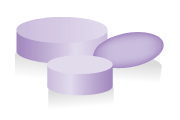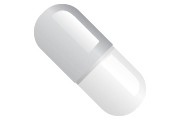Tolterodine for bladder problems
This leaflet is for parents and carers about how to use this medicine in children. Our information may differ from that provided by the manufacturers, because their information usually relates to adults. Read this leaflet carefully. Keep it somewhere safe so that you can read it again.
Name of medicine
Tolterodine tartrate
Common brand names
Tablets: Detrusitol, tolterodine
Slow-release (XL) capsules: Mariosea XL, Neditol XL, Toterma XL, Tolthen XL, Blerone XL, Detrusitol XL, Preblacone XL
Why is it important for my child to take tolterodine?
Tolterodine helps to relax the muscles in the wall of the bladder, where urine (wee) is stored. This allows the bladder to hold more urine. This will help children who wet the bed at night (noctural enuresis) and those who have difficulty controlling when they wee (urinary incontinence) or who wee often during the day (urinary frequency).
What is tolterodine available as?
Tablets: 1 mg, 2 mg
Slow-release (XL) capsules: 2 mg, 4 mg
When should I give tolterodine
Tolterodine is usually given once or twice each day. Your doctor will tell you how often to give it.
· Once a day: This should be at bedtime for children with nocturnal enuresis. For children with other bladder disorders you can give tolterodine in the morning or the evening.
· Twice a day: Give one dose in the morning and one in the evening. Ideally, these times are 10–12 hours apart. For example, this could be between 7 and 8 am and between 7 and 8 pm.
Give the medicine at about the same time(s) each day so that this becomes part of your child’s daily routine, which will help you to remember.
How much should I give?
Your doctor will work out the amount of tolterodine (the dose) that is right for your child. The dose will be shown on the medicine label.
Your doctor may suggest that your child starts with a low dose. They may then increase the dose as your child gets used to the medicine and depending on how they respond to it. Your doctor will explain what to do. If you are not sure how much to give, check with your doctor, nurse or pharmacist.
It is important that you follow your doctor’s instructions about how much to give.
Do not increase the dose unless your doctor tells you too.
How should I give tolterodine?

Tablets
- Tablets should be swallowed with a glass of water, squash or juice. Your child should not chew the tablet.
- You can crush the tablet and mix it with a small amount of soft food such as yogurt, jam or mashed potato. Make sure your child swallows it straight away, without chewing.

Slow-release capsules
- Capsules should be swallowed whole with a glass of water or squash (but not juice). Your child should not chew the capsules.
When should the medicine start working?
The medicine starts to work within a few hours but you may not see any improvement for up to a week. It can take up to 4 weeks for the medicine to have maxium effect. It is important that you continue to give tolterodine as you have been told to during this time.
What if my child is sick (vomits)?
- If your child is sick less than 30 minutes after having a dose of tolterodine, give them the same dose again.
- If your child is sick more than 30 minutes after having a dose of tolterodine, do not give them another dose. Wait until the next normal dose.
If your child is sick again, seek advice from your family doctor, nurse, pharmacist, or hospital. They will decide what to do based on your child’s condition and the specific medicine involved.
What if I forget to give it?
If you usually give it once a day: Give the missed dose when you remember during the day, as long as this is at least 12 hours before the next dose is due. If you remember after this time, do not give the missed dose. Wait until the next usual dose.
If you usually give it twice a day: If you remember up to 4 hours after you should have given a dose, give your child the missed dose. For example, if you usually give a dose at about 7am, you can give the missed dose at any time up to 11am. If you remember after that time, do not give the missed dose. Give the next dose as usual.
What if I give too much?
You are unlikely to cause harm if you give an extra dose of tolterodine by mistake. If you are concerned that you may have given too much, contact your doctor or local NHS services (details at end of leaflet). Have the medicine or packaging with you if you telephone for advice.
Are there any possible side effects?
We use medicines to make our children better, but sometimes they have other effects that we don’t want (side-effects).
Side effects you must do something about
Tolterodine may occasionally cause urinary retention, meaning that it is difficult to wee. If your child has difficulty emptying their bladder or starting to wee, or they cannot wee when they feel the need, contact your doctor.
Your child may have difficult doing a poo (constipation). Keep a note of how often they do a poo. If they get constipated, or if they feel that they want to poo but can’t, contact your doctor or pharmacist for help.
If your child has a high temperature (above 38C), a burning sensation when they wee, pain in the back or side, or cloudy or pink wee, they may have an infection in the bladder (urinary tract infection or UTI). Contact your doctor or pharmacist.
If your child has chest pain or they feels that their heart is racing, contact your doctor.
Other side-effects you need to know about
When your child first starts taking tolterodine they may feel sleepy, dizzy or have blurred vision. These effects are usually mild and should wear off after a few days as your child gets used to the medicine. If they are still a problem after 2 weeks, or you are worried, contact your doctor but continue to give tolterodine.
Your child may get stomach pain, feel sick (nausea) or be sick (vomit), pass a lot of wind (burping or farting), have diarrhoea (loose poo) or constipation (difficulty doing a poo) when they first start taking tolterodine.
Tell your child’s teacher that they are taking tolterodine and that they may feel sleepy. Your child should take extra care when taking part in physical activities.
Your child may sometimes get side-effects that are not listed above. If you notice anything unusual and are concerned, contact your doctor. You can report any suspected side-effects to the UK safety scheme at mhra.gov.uk/yellowcard.
More information on side-effects can be found in a leaflet on our website.
Can other medicines be given at the same time as tolterodine?
You can give your child medicines that contain paracetamol or ibuprofen, unless your doctor has told you not to.
tolterodine should not be taken with some medicines that you get on prescription. Tell your doctor and pharmacist about any other medicines your child is taking before giving tolterodine. This includes herbal and complementary medicines.
Check with your doctor or pharmacist before giving any other medicines to your child. This includes herbal and complementary medicines.
General advice about medicines
- Try to give medicines at about the same times each day, to help you remember.
- If you are not sure a medicine is working, contact your doctor but continue to give the medicine as usual in the meantime. Do not give extra doses, as you may do harm.
- Only give this medicine to your child. Never give it to anyone else, even if their condition appears to be the same, as this could do harm.
- Make sure that you always have enough medicine. Order a new prescription at least 2 weeks before you will run out.
- Make sure that the medicines you have at home have not reached the ‘best before’ or ‘use by’ date on the packaging. Give old medicines to your pharmacist to dispose of.
Where should I keep this medicine?
- Keep the medicine in a cupboard, away from heat and direct sunlight. It does not need to be kept in the fridge.
Make sure that children cannot see or reach the medicine or syringes.
- Keep the medicine in the container it came in.
Who to contact for more information?
Your doctor, pharmacist or nurse will be able to give you more information about tolterodine and about other medicines used to treat bladder problems.
England: NHS 111
Tel 111
www.nhs.ukScotland: NHS 24
Tel 111
www.nhs24.scotNorthern Ireland: NI Direct
Wales: NHS 111 Wales
Tel 111
www.111.wales.nhs.ukCopyright disclaimer
Version [1]. © NPPG, RCPCH and WellChild, all rights reserved. Review by March 2027.
The primary source for the information in this leaflet is the British National Formulary for Children. For details on any other sources used for this leaflet, please contact us through our website, www.medicinesforchildren.org.uk.
We take great care to make sure that the information in this leaflet is correct and up-to-date. However, medicines can be used in different ways for different patients. It is important that you ask the advice of your doctor or pharmacist if you are not sure about something. This leaflet is about the use of these medicines in the UK, and may not apply to other countries. The Royal College of Paediatrics and Child Health (RCPCH), the Neonatal and Paediatric Pharmacists Group (NPPG), WellChild and the contributors and editors cannot be held responsible for the accuracy of information, omissions of information, or any actions that may be taken as a consequence of reading this leaflet.
